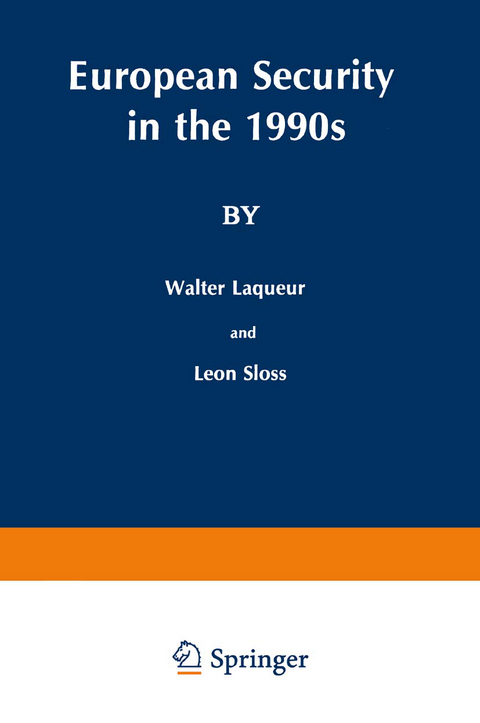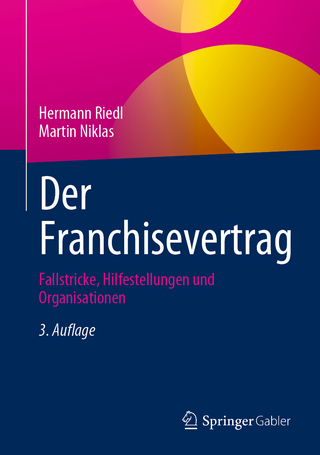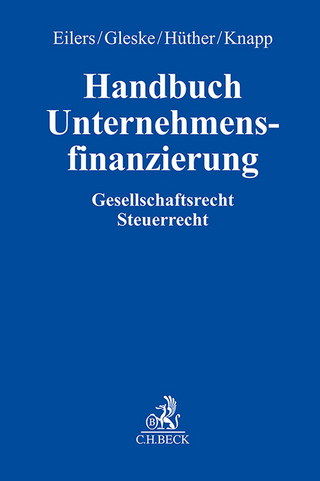
European Security in the 1990s
Kluwer Academic/Plenum Publishers (Verlag)
978-0-306-43442-6 (ISBN)
Rarely if ever have the political, economic, and military foundations of the Western Alliance been in such a state of flux. Walter Laqueur and Leon Sloss, therefore, deserve credit not just for the quality of the analysis in this superb book but also for the timeliness of its appearance. As Laqueur says in his chapter "Touring the Western European Defense Hori zon," if the likely development of European defense policies is not particularly reassuring, at least it gives no grounds for despair. The list of problems we face is a daunting one. First there is the spiralling cost of defense expenditures, particularly in the absence of significant NATO or inter-European cooperation. This is particu larly serious in light of the reluctance to increase, or even maintain, current expen ditures in the midst of Mikhail Gorbachev's "peace offensive" and the extraordinary changes in Eastern Europe, both of which have had a dramatic impact on Western public opinion. There is also a problem in the perceived relative economic decline of the United States vis-a-vis Western Europe and Japan, which only exacerbates calls to reduce the number of American troops in Europe. Other dangers to the political cohesion and military credibility of the alliance include demographic trends that threaten current manpower levels, transatlantic acrimony over the burden-sharing issue, and political pressures (particularly in West Germany) toward denucleariza tion and even neutralism.
1. Touring the Western European Defense Horizon.- 2. Western European Defense: The Next Ten Years.- 3. Future Requirements for Theater Weapons in Western Europe.- Appendix: European Security in the Postwar Period: Documents from 1948–1989.- The North Atlantic Treaty Organization.- The North Atlantic Treaty, August 24, 1949.- North Atlantic Council Communiqué, December 14, 1967.- Speech of M. Laurent Fabius, September 17, 1982.- North Atlantic Council Communiqué, December 9, 1983.- Lord Carrington, Secretary General, on the Alliance, September 21, 1984.- The Security Policy of the Federal Republic of Germany, 1985.- Maintaining Security in a Changing World [United Kingdom, 1988].- Declaration of the Heads of State and Government, March 2–3, 1988.- Statement on the Ministerial Meeting of the North Atlantic Council, June 9–10, 1988.- European Security Cooperation.- Treaty between Belgium, France, Luxembourg, the Netherlands, and the United Kingdom, March 17, 1948.- Protocols to the 1948 Brussels Treaty, October 23, 1954.- Franco-German Summit Statement, February 27–28, 1986.- Speech by Sir Geoffrey Howe, March 16, 1987.- Arms Control: The Intermediate-Range Nuclear Forces Treaty.- Treaty between the USA and USSR, December 8, 1987.- Address by FRG Chancellor Helmut Schmidt, October 28, 1977.- Communiqué of a Special NATO Meeting, December 12, 1979.- President Ronald Reagan’s Speech to the United Nations General Assembly, September 26, 1983.- NATO Nuclear Planning Group Communiqué, October 28, 1983.- Speech by FRG Chancellor Helmut Schmidt to the SPD Conference, November 19–20, 1983.- Statement by General Secretary Andropov, November 24, 1983.- Communiqué of the North Atlantic Council, June 11, 1987.- NATO Nuclear Planning Group Communiqué, November 1987.-North Atlantic Council Ministerial Communiqué, December 1987.- Arms Control: Short-Range Nuclear Missiles.- Statement by British Foreign and Commonwealth Office, May 14, 1987.- NATO Nuclear Planning Group Communiqué, May 15, 1987.- Statement by the Government of the Federal Republic of Germany, June 2, 1987.- Arms Control: Conventional Forces.- Document of the Stockholm Conference, September 19, 1986.- Address of the Warsaw Treaty Member States, June 11, 1986.- Press Conference of François Mitterrand, April 23, 1987.- Interview with Jacques Chirac, May 16, 1987.- Halifax Statement on Conventional Arms Control, May 30, 1987.- Conventional Arms Control: The Way Ahead, March 2–3, 1988.- Mikhail Gorbachev’s Address to the United Nations, December 7, 1988.- Statement Issued by the North Atlantic Council, December 8–9, 1988.- Mandate for Negotiation on Conventional Armed Forces in Europe, January 10, 1989.- Position Paper, March 6, 1989.- Conceptual Framework of Agreement on Conventional Armed Forces in Europe, March 9, 1989.- Speech by Hans-Dietrich Genscher, April 27, 1989.- President George Bush’s Statement, May 29, 1989.- About the Authors.
| Erscheint lt. Verlag | 31.5.1990 |
|---|---|
| Reihe/Serie | Issues in International Security |
| Zusatzinfo | XVI, 218 p. |
| Verlagsort | New York |
| Sprache | englisch |
| Maße | 156 x 234 mm |
| Themenwelt | Wirtschaft ► Betriebswirtschaft / Management |
| ISBN-10 | 0-306-43442-3 / 0306434423 |
| ISBN-13 | 978-0-306-43442-6 / 9780306434426 |
| Zustand | Neuware |
| Haben Sie eine Frage zum Produkt? |
aus dem Bereich


